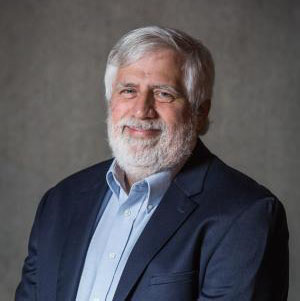
In December 2021, Lael Keiser and James Endersby of the Harry S Truman School of Government and Public Affairs heard about a $35,000 shared-resource grant that would help attract students to MU and other Missouri colleges and universities that otherwise might not graduate with degrees, including first-generation, disadvantaged, and under-represented minority students.
The American Political Science Association (APSA) Peer-to-Peer Pedagogical Partnership Grant, to be used for shared instructional resources for introductory government and political science classes, was awarded to the Truman School, as well as St. Louis Community College (led by John Messmer) and Missouri State Southern University (led by Nicole Foster Shoaf). It is a relatively new grant.
Links Across Missouri
“This grant is designed to link research universities, like MU, with other teaching schools to try to encourage up-to-date innovative and effective teaching tools for undergraduate students,” Endersby says. “One of the intentions is to reach out to two-year colleges, community colleges, and others — especially students from minority backgrounds — to help educate them in a more innovative way.”
The outreach will be to political science departments throughout Missouri, with the goal of providing more teaching resources and common core curriculum, Endersby adds.
He cites as an example, a basic American government course, like Political Science 1100, American Government, offered at Mizzou. In Missouri, there is a state government legislation that requires all undergraduate students to have a class on the United States and Missouri constitutions.
We are not trying to tell other schools what to do, rather we are trying to be an effective leader. - James Endersby
“We have thousands of students who go through government courses every year,” he says. “And, of course, we have transfer students who are taking that course, or a similar course at another university. And so, part of the purpose is to help us provide coordinating strategies, so we do an equally good job throughout the state in terms of educating undergraduate students.”
Changes That Benefit All
“The Truman School is changing the focus of our department — the merging of political science with public affairs — and our intent is to become more of a leader in terms of political science and public policy,” Endersby says. “And so, I think the direction we’re going fits this initiative perfectly. We are not trying to tell other schools what to do, rather we are trying to be an effective leader.”
Endersby says the Truman School hopes to represent about two dozen universities, with TSGPA at the helm, demonstrating how reaching out to the underserved should and could work better for all involved.
“We’re trying to develop that model because we don’t exactly know what it is either. But we’re going to do our best to help, to position MU as the center of a network of colleges across the state, which I think is what the public wants in Missouri; I think it’s what the State Legislature wants.”
Conference in Late May
The $35,000 grant will be used to bring faculty from other universities across the state to a two-day conference held May 26—27 at the Memorial Student Union, and also via Zoom. The grant will pay for travel, research assistance support, and more.
“The conference is the big event where we bring everyone together in a way that’s only the tip of the iceberg,” Endersby says. “We will present teaching ideas that will help train students. For instance, several people expressed an interest in simulations, role-playing simulations, which seem to work well in political science. You can understand Congress a little better if you play the role of a congressman and see how difficult it is to get a piece of legislation passed. A lot of different people in different schools have developed role-playing simulations that work. We have a number that we’ve developed here at MU.”
Purpose to Assist Across Statewide
The website will also have writing assignments, tips for academic improvement and more — again with the goal of helping minority and underserved students achieve success at college.
Endersby says the purpose is not to bring students to MU, but rather to assist in efforts statewide. However, he does expect these efforts will increase MU’s ability to recruit more minority groups.
“MU is underrepresented in terms of many minority groups, and it’s something we want to rectify. This will benefit students and faculty, and the university. I think we’ll learn a lot about how to teach these students and reach out to students who don’t have the background that MU has typically served."